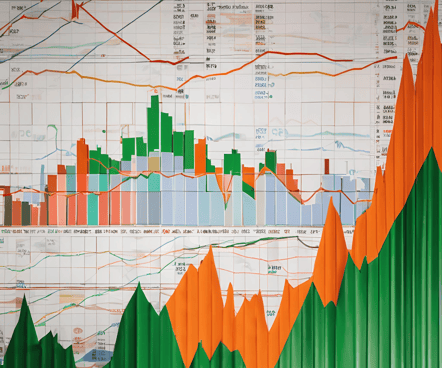India’s Market Marathon: What’s Fueling the Surge Amid Tensions and Trade Wars?
Discover why the Indian stock market continues to rally despite geopolitical tensions with Pakistan and global trade war concerns triggered by U.S. tariff moves. Explore key economic and investment insights that explain this market resilience.
BLOG
5/5/20252 min read
India’s Market Marathon: What’s Fueling the Surge Amid Tensions and Trade Wars?
April 2025 was a month marked by geopolitical anxiety and economic friction. A tragic terror attack in Pahalgam escalated tensions along the India-Pakistan border, creating concerns over potential military conflict. At the same time, former U.S. President Donald Trump reignited a global trade war, announcing fresh tariffs that rattled global markets.
Despite these adversities, the Indian stock market not only remained steady—it surged. The Nifty 50 and Sensex rebounded sharply after an initial dip, confounding many market observers. At Prasad Investments, we believe understanding this resilience is critical for mutual fund investors who want to stay informed and confident in their long-term strategies.
1. Foreign Portfolio Investment (FPI) Inflows at Record Highs
In a notable shift, India became a preferred destination for global capital during this volatile period. Foreign investors pumped over $4.1 billion into Indian equities across nine straight sessions—marking the longest buying streak since July 2023.
This influx wasn’t random—it reflected strong investor faith in India’s macroeconomic fundamentals and long-term growth story, even amid global instability.
2. Trade War? India is Benefiting from the Realignment
While U.S. tariffs created tremors globally, India emerged as a net gainer. American companies are accelerating their supply chain shifts away from China. Indian electronics manufacturers like Dixon Technologies and Kaynes Technologies saw renewed demand, with global giants such as Apple and HP expanding operations in India.
This shift boosted mid-cap and manufacturing-focused mutual funds, offering fresh growth avenues for diversified portfolios.
3. Strong Corporate Earnings Provided Support
Major Indian companies outperformed expectations in Q4FY25. Reliance Industries, among others, delivered robust earnings and buoyed overall investor sentiment. This helped mutual funds with large-cap exposure to maintain value and even gain, despite global headwinds.
When domestic corporate health is solid, it creates a buffer against external volatility—and the recent rally reflects exactly that.
4. Currency Strength and Monetary Stability
The Indian rupee appreciated by over 1.2% in April, strengthening to ₹84.48 against the U.S. dollar—its best performance since November 2024. This was driven by both FPI inflows and strong hedging activity from exporters. Importantly, the Reserve Bank of India chose not to intervene, signaling confidence in economic stability.
A strong currency and stable interest rate regime provide fertile ground for equity markets and reduce volatility for global investors.
5. Historical Market Resilience to Geopolitical Risks
India's markets have historically shown resilience during border tensions. Barring the 2001 Parliament attack, corrections linked to India-Pakistan incidents have typically remained below 2%. Markets tend to price in risk quickly and recover if there is no large-scale escalation.
This pattern was repeated in April 2025. After the initial knee-jerk reaction post the Pahalgam attack, the markets stabilized—supported by earnings, FPI, and currency momentum.
What This Means for Mutual Fund Investors
For investors in equity mutual funds, especially those with long-term horizons, the key takeaway is this: market sentiment can temporarily waver, but fundamentals drive long-term growth. Diversified mutual fund portfolios that include large caps, mid caps, and sectoral themes like manufacturing or technology are well-positioned to ride out volatility.
Staying invested during uncertainty—rather than reacting impulsively—is often what differentiates successful investors from the rest.
Final Thoughts
India's equity markets have once again demonstrated their capacity to absorb external shocks and emerge stronger. Be it a terror threat or a trade war, the combination of a strong domestic economy, global capital flows, and sectoral tailwinds is powering this resilience.
At Prasad Investments, we help our clients navigate such complexities with clarity and long-term conviction. If you're invested in mutual funds, stay the course and let disciplined investing work for you—even when headlines seem alarming.


